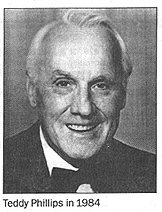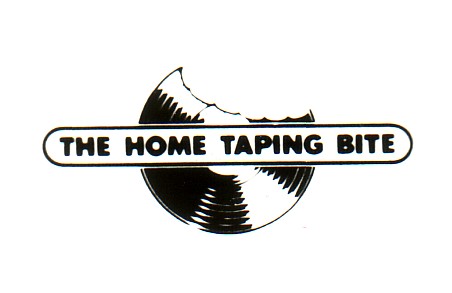 AMG REVIEW: A self-described "work in progress," Conscientious Objector consists primarily of outtakes, demos, and alternate versions of songs from R. Stevie Moore's forthcoming collaboration with Yukio Yung, The Yung and Moore Show. The follow up to the pair's 1997 collaboration Objectivity, The Yung and Moore Show features a full-on return to pop songwriting on Moore's part, to an extent not seen since the days of Teenage Spectacular. Even in these somewhat rough forms, the sparkling brilliance of songs like "Schwanns Catalog" and "Name Tag the Entertainer" is clear, and the two newly enhanced versions of two of Moore's most beloved songs, "Everything" and "I Go Into Your Mind" are sublime, with Yung's sensitive rearrangements supporting some of Moore's best vocal performances in some years. Besides these gems, Conscientious Objector contains surprises like a pair of tunes featuring the Breetles' Chris Breetveld, including one, "Evelyn Road," that's a charming tribute to Moore, a surf-rock version of Frank Zappa's "Cruising for Burgers," and an enjoyably bonkers cover of Cheeky Monkey's power pop nugget "Down." Even the odd little found-sound interludes have a higher batting average than usual, the highlights being the two-part phone tape "Walt Gollender's Breath," and a pair of musical birthday greetings to Moore and his wife Krystyna Olsiewicz by Moore's occasional musical partner David Gregory. Overall, Conscientious Objector is Moore's strongest effort in years.
AMG REVIEW: A self-described "work in progress," Conscientious Objector consists primarily of outtakes, demos, and alternate versions of songs from R. Stevie Moore's forthcoming collaboration with Yukio Yung, The Yung and Moore Show. The follow up to the pair's 1997 collaboration Objectivity, The Yung and Moore Show features a full-on return to pop songwriting on Moore's part, to an extent not seen since the days of Teenage Spectacular. Even in these somewhat rough forms, the sparkling brilliance of songs like "Schwanns Catalog" and "Name Tag the Entertainer" is clear, and the two newly enhanced versions of two of Moore's most beloved songs, "Everything" and "I Go Into Your Mind" are sublime, with Yung's sensitive rearrangements supporting some of Moore's best vocal performances in some years. Besides these gems, Conscientious Objector contains surprises like a pair of tunes featuring the Breetles' Chris Breetveld, including one, "Evelyn Road," that's a charming tribute to Moore, a surf-rock version of Frank Zappa's "Cruising for Burgers," and an enjoyably bonkers cover of Cheeky Monkey's power pop nugget "Down." Even the odd little found-sound interludes have a higher batting average than usual, the highlights being the two-part phone tape "Walt Gollender's Breath," and a pair of musical birthday greetings to Moore and his wife Krystyna Olsiewicz by Moore's occasional musical partner David Gregory. Overall, Conscientious Objector is Moore's strongest effort in years.
Stewart Mason, All Music Guide

JUNKMEDIA.ORG
R. Stevie Moore
Conscientious Objector
Self-Released, 2004
(4 out of 5 stars)
If you believe R. Stevie Moore, Conscientious Objector is the best album of his 36-year music career. However, after self-releasing some 300 records, many of them double albums, Moore could hardly be considered a good judge of his own work. His back catalog, overwhelming and intimidating by any standard, has done little to improve Moore's standing with an indifferent, time-strapped public over the years, even if it has further endeared him to his cultish, possessive fans.
But wait! Conscientious Objector actually makes a case for this DIY pioneer's inability to separate the wheat from the chaff. Nearly all of the album's 51 tracks provide something of interest, and a handful are brilliant. "Monitor" wastes no time in shattering expectations, as Moore simply whistles and hums along with an old lounge record for the song's duration. The remainder of Conscientious Objector is a breathtaking tour through the last 80 years of music history, with forays into honky tonk, punk, country blues, drum and bass, soundtracks, and power pop, to name just a few.
Moore structures his albums along a freeform radio aesthetic, combining spoken word bits and song fragments alongside fully realized compositions. Although the half-finished tracks are considered "filler" by all but the fanatics, Moore actually uncovers some of his most clever observations in the musical haikus of his latest double CD. In "discodiscodiscodisco" he recreates that genre's thumping beat by simply repeating the word in metronomic succession. But what is most impressive is the way Moore holds it all together, using his humor - alternately wry, subtle, blatantly ironic (a straight-faced reading of "Me so Horny"), and crass - as the glue to bind together this shambling musical history lesson.
Mark Griffey
September 9, 2004

PITCHFORKMEDIA.com 7Oct04
R. STEVIE MOORE
Conscientious Objector
[CDR; 2004]
Rating: 8.0
R. Stevie Moore was born in Nashville, January 1952, the son of former Elvis bassist Bob Moore. Beginning in the mid-1970s, he began releasing albums and cassettes, and since has amassed more than 400 separate full-length albums. That's right: 400. So why haven't you heard this guy? First of all, other than a few scattered indie label releases, most of his material has been self-released via mail order (now via www.rsteviemoore.com). Early records such as 1976's Phonography and 1977's Swing and a Miss defined his aesthetic: a mixture of Anglo-powered pop, Zappa-esque instrumentals, lo-fi experimental sound design, and other music that defies categorization. Amazingly, although the nature of his music varies considerably from song to song, his albums are consistently interesting; if you like one, there's a very good chance you'll like many.
Conscientious Objector was released in June, and is described by Moore as "works in progress." Don't let that fool you: Its songs are no less "finished" than hundreds of others in his canon-- they're merely waiting on a final destination (either in a different mix or another record). The sound is generally unpolished, despite the best efforts of his collaborators, but certainly not to the detriment of the experience. Fans of Daniel Johnson should find much to love about Moore's sound, but beyond that, lovers of eccentric pop-- from the school of Brian Wilson, Van Dyke Parks, XTC, Animal Collective, Neutral Milk Hotel, and Bob Drake-- have a goldmine in this double album.
The range of music on Conscientious Objector is staggering, from Moore's "cover" of the 1956 exotica tune "Monitor" to the gentle, guitar and vocal showcase "Take Back" to the trippy drum 'n' bass of "Yung & Moore Show (Theme 1)" to the lazy alt-country of "Social Studies Buddies" to the hi-speed, dreamy IDM of "Name Tag the Entertainer Take 12" to the bizarre collaboration with Paw Tracks' Ariel Pink on "What Else Am I Not Supposed to Do?" to the Tom Waits-ish reading of "Hot Cakes and Sausage" to the breezy electro-bossa on "Divorce Court" to a Bell Labs text-to-speech reading of all of his song titles on "A to Z" to the freak-folkish lament "Big Ben (Bridge Collapse Kills 300 Toddlers) by Spandek" to the bizarre, hazy cover of 2 Live Crew's "Me So Horny" to his a cappella "Swans" to the synthesizer explosion of "Judson Fountain of Wayne Wayne". And that's just the first disc!
Moore certainly gets a little help from his friends. In addition to collaborators Ariel Pink, Terry Burrows (aka Yukio Yung), and Don Campau, he also works with XTC's Andy Partridge on "Bang You're Alive" and former XTC guitarist Dave Gregory, who contributes two birthday-themed greetings, "Gregorian RSM52" and "Gregorian KO40" (named for Moore and his longtime partner Krys O). Furthermore, he uses vocals tracks from the Electric Six to construct "Gabe R." and gets assistance from Bell Labs to make minimalist vocal mantra on "Discodiscodiscodisco"-- only to follow it up with his own monologue, "Disco Freaks", wherein he blames the end of the world on dance music and complains that "you don't make me ice cubes quick enough."
Elsewhere, The Breetles' Chris Breetveld co-writes "(My Baby's Got A) Bank Account", a concise slice of Anglophile power-pop, and Burrows contributes to many tracks that Moore maintains will be heard in "superior alternate" mixes on a forthcoming album, The Yung & Moore Show. And then there's old Walt Gollender, who unknowingly contributes to the set's funniest "pieces," the two-parted "Walt Gollender's Breath".
Nevertheless, the spirit of Conscientious Objector is pure Moore. "Schwann Catalog" (named after the famous classical music mail-order catalog) features a backing track by Burrows but lyrics and vocals by Moore. His falsetto is deep-- not the sound of an old man trying to sound younger or softer, but a sensitive, humble one sounding knowingly vulnerable. Burrows reworks his "I Go into Your Mind" (originally from Moore's cult-classic 1978 LP Delicate Tension) into dreamy, trip-pop, featuring Krys O's graceful, weathered vocals. The song, like much of Moore's work, is born from a mind obviously reared on many strands of popular music, yet so attuned to its maker's idiosyncrasies as to seem detached from any song that had ever been. Even when he applies himself to relatively mundane numbers like the Beatlesque "Down" or the dubious doo-wop of "Wonder Where", the end result is less piss-take than insular diversion. And they're never less than interesting.
Of course, over the course of 51 tracks there's bound to be some filler. But then, given Moore's sizable discography, one shouldn't expect anything close to a perfect track record. Ultimately, the breadth of expression and creativity is enough for me to recommend Conscientious Objector on principle alone, and since there are so many truly good songs in the lot, it becomes a simple decision. R. Stevie Moore may well be the most talented, interesting pop musician never to have released a record on a major label, and this album is as much a testament to him as any.
Dominique Leone, Dallas TX, 10-7-04
The Little Lighthouse KLSU, Baton Rouge
R. Stevie Moore - Conscientious Objector
Ever since late seventies, R. Stevie Moore constantly puts out albums every now and then. This one came out recently and it counts as one hundred and fifty first album in his career if my count is right. In the meantime, Moore published three more albums. It's really hard to keep track of them, but he sells them as a 20cd box set on his site. Only seventeen of his albums are considered 'official' albums, though and Conscientious Objector is not one of them, but only Moore knows what's what in his discography. It would be wrong to assume that he just puts out every sound he makes. Conscientious Objector really is a collection of all R Stevie's recent musical experiments, but it is a carefully collected one. About 70 minutes are more or less conventional songs and the rest of this of almost 160 minutes of this double cd is various sound games and vignettes that fill the space in between. They add up to unique drama of this release and help the chaos as those 'more conventional' songs are deliberately left unfinished. In fact, his disability to write a hit song Moore very well described in one of his best known songs Why Can't I Write A Hit long time ago. As he puts it, he's not writing songs for bosses of the record companies. And that's the key, he's not writing them really for anyone, he's even less interested in wrapping them up like some overproduced product. He makes these songs, pushes the recording button and before the stop is pushed back he almost rejects them and goes on for another musical adventure. Now this all wouldn't matter at all if Moore didn't have talent for making truly engaging and humorous tunes in tradition of Brian Wilson and Andy Partridge (who appears with a phonecall on this album) and he hadn't deep knowledge and appreciation for pop music from Elvis (his father was session musician for The King) to The Residents. In any case, welcome to the rarely explored territory of planet Moore. If these are your first steps, spend some time downloading at www.rsteviemoore.com and check out two interviews (here and here) with Moore.
babysue.com review jan05
"If this one don't light a fire in your soul, your wood's wet."
Robert Christgau, Jr.
|

 BRILLIANT TWO CDR SET
BRILLIANT TWO CDR SET




 AMG REVIEW: A self-described "work in progress," Conscientious Objector consists primarily of outtakes, demos, and alternate versions of songs from R. Stevie Moore's forthcoming collaboration with Yukio Yung, The Yung and Moore Show. The follow up to the pair's 1997 collaboration
AMG REVIEW: A self-described "work in progress," Conscientious Objector consists primarily of outtakes, demos, and alternate versions of songs from R. Stevie Moore's forthcoming collaboration with Yukio Yung, The Yung and Moore Show. The follow up to the pair's 1997 collaboration 


 < BACK
< BACK
